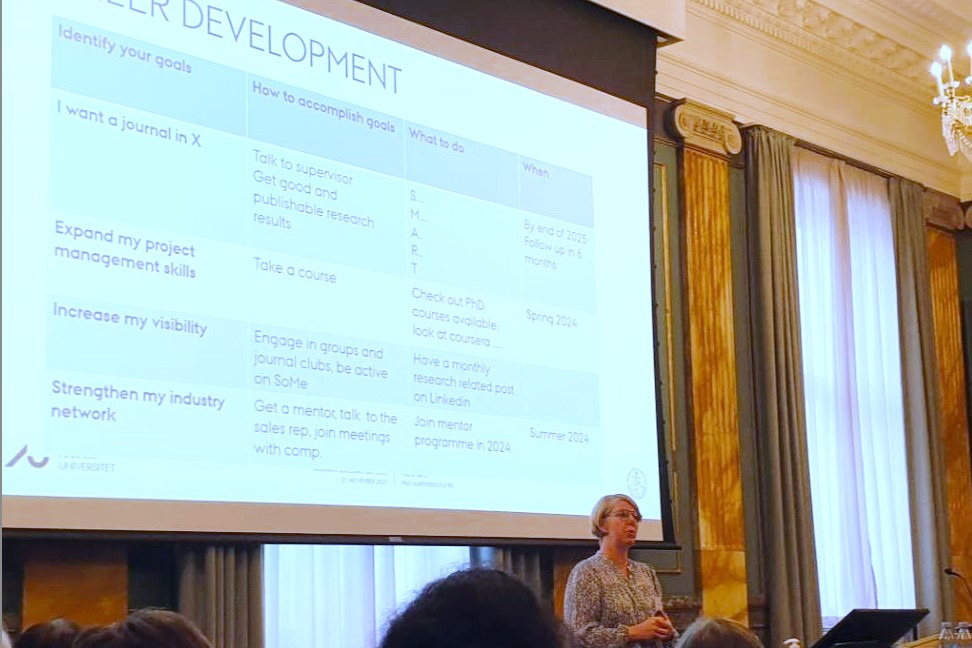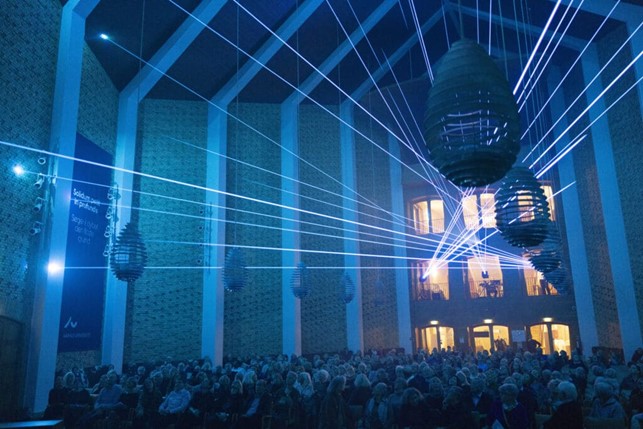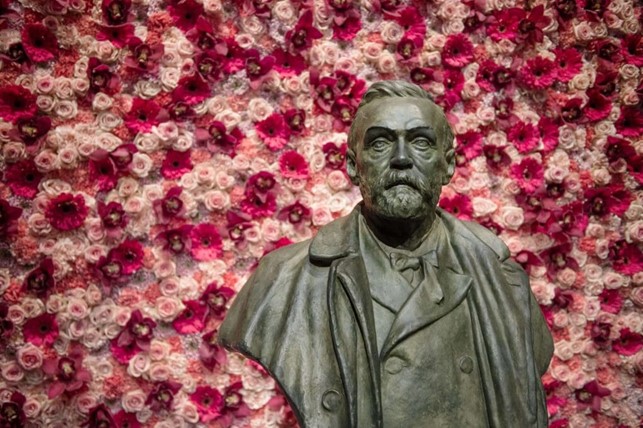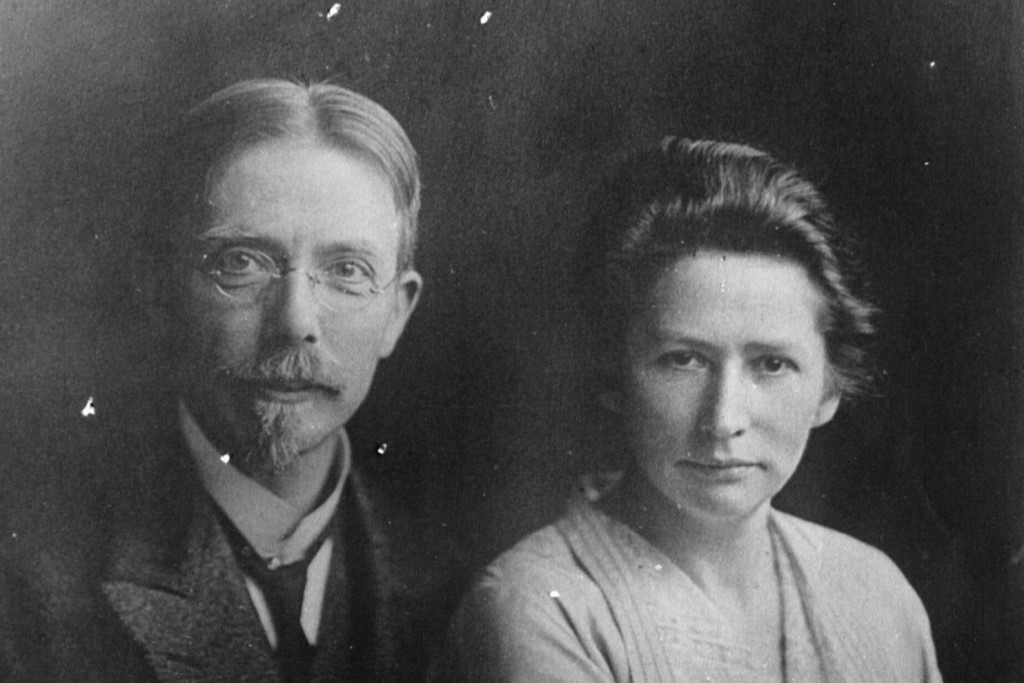Climate seminar highlights solutions
Career development and entrepreneurship are essential to rebuilding Ukrainian research

The third Ukrainian Scholars’ Days seminar focused on Ukrainian researchers developing their career path, preferably combined with a good measure of entrepreneurship.
Addressing the audience of Ukrainian researchers as dear friends, the President of the Royal Academy Marie Louise Nosch greeted them with a warm welcome to the third seminar, organised jointly with the Danish Young Academy.
Since the start of the war in February 2022, Ukrainian Scholars’ Days have been held around every six months to support Ukrainian researchers fleeing the war and to ensure that research, also during the reconstruction of Ukraine, is given a key role in creating a prosperous future-proof society. Today, in the meeting hall, 20 researchers are seated. Most of them have already participated in the former Ukrainian Scholars’ Days arrangements. They are all finding themselves in a complicated situation in which they, despite the seriousness of the situation at hand, also need to think about the future that lies ahead.
“Even though the current situation is an unfortunate one, let today focus on how we can get the best out of it,” emphasised Birgitte Pristed, as deputy chair of the Danish Young Academy.
As the central individuals of today’s programme, the Ukrainian scholars will be presented with both new insights as well as the opportunity to express their opinion towards the Danish support of Ukraine.
A broad career choice
Due to the challenges and need for reconstruction in Ukraine, Ukrainian researchers can play a decisive role in shaping the country’s future. For this reason, the first part of the seminar centred on career development and choices.
“There are fewer jobs in academia and more competition to get them,” explained Vibeke Broe, senior career counsellor for PhD students and junior researchers at Aarhus University.
Researchers are fortunately often valued employees in multiple contexts outside academia. That is why she encouraged the audience to think more broadly and to set aside time to reflect on their own abilities, goals and motivation, in addition to building a network, preferably on social media.
“It’s our own responsibility, as researchers, to think outside the box and bring our own skills and qualifications out into the world,” asserted Broe.
Only a small percentage of PhDs and young researchers go on to become professors, with figures from the Royal Society indicating that less than one percent do so. Luckily, there are many opportunities in private businesses and public institutions where the abilities that researchers develop and possess are an excellent asset, for instance their outstanding analytical skills, persistence, ability to solve complex problems and proficiency in project management. And such skills are useful when working at private companies as well as public institutions.
Before giving the floor to Professor Jes Broeng, director of the Centre for Technology Entrepreneurship at the Technical University of Denmark, Broe underlined the importance of strengthening the scientific capacity of Ukraine, for example by promoting PhD programmes, supporting research projects and establishing close links between Ukrainian universities and international institutions.
Innovation and entrepreneurship
Broeng continued where Broe left off, sharing perspectives on innovation and free enterprise as drivers of economic growth and development. In areas where Ukrainian researchers are at the forefront, they have the potential to translate their knowledge and research results into breakthrough technologies and products within research areas such as in aerospace. Researchers need to be aware of the various stepping stones that are key to increasing innovation and entrepreneurship.
“If you’ve done the research, be open about your ideas. It’s natural to wary of having your ideas stolen, but research shows that this rarely happens. If you reach out to academia and industry, but also engage in conversation with a wide range of stakeholders, then someone will take notice of your ideas,” assured Broeng.
In addition, join forces with people who have experience working professionally with innovation and entrepreneurship is a wise move. The audience, which represented a wide array of scientific disciplines, naturally asked about the role of the humanities.
“Just because you study H.C. Andersen’s fairy tales, it doesn’t mean that you’re exempt from thinking about entrepreneurship. Anthropology and psychology, for instance, often play a role in developing products, though the humanities are often co-players as opposed to initiators,” pointed out Broeng.
In the US, for instance, incorporating the humanities as a natural part of free enterprise is much more common, but this is not yet the case in Europe.
Once you have an idea and have established a setup, it is important to be aware of what roles team members have. “In short, startups require three types of personalities: a hacker who understands the technical aspects, a hustler who can sell the product, and a hipster who can tell the story,” he concluded.
Recovery and reconstruction through partnerships
Anne Kahl and Julian Petar Ilievski from the Ministry of Foreign Affairs of Denmark gave the final presentation of the day, sharing insights about the importance of collaboration between Denmark and Ukraine for the nation’s recovery and reconstruction in terms of, e.g. infrastructure, energy supply, healthcare and education.
In particular, in addition to military support in the Mykolaiv Region, Denmark provides assistance in eight areas, including rebuilding social infrastructure, water, heat and electricity supply, youth and culture. There is also concrete collaboration with the university in the region.
The researchers finally had the opportunity to share their suggestions with representatives from the Danish aid, face to face.
So, in which ways did the researchers imagine that their country best be assisted?
What seemed to be a broadly agreed general wish was to further continue a collaboration between Denmark and Ukraine in the future. And as one participant mentioned, it was interesting to meet the Danish research culture, in which equality among professors and students is very prominent.
When asked directly, another person expressed the need for equipment and access to books and other resources that have been ruined by the war’s bombings, while another asked for inspiration for creating guidelines to counter plagiarism and increase academic freedom.
At one of the earlier Ukrainian Scholars’ Days, Sophia Opatska, Vice Principal of Strategic Development at the Ukrainian Catholic University in Lviv, Ukraine, but for the time being working at Aarhus University, pointed out three areas that, in her opinion, are central to the rebuilding of the scientific landscape of Ukraine:
“I would point towards Ukrainian agriculture, the problematics of brain drain and the challenge that lies in having overheads covered as some of the greatest challenges for a solid recovery plan after the war”, she stated back in the spring of 2023.
Following the presentation, the event concluded with a networking session between the Ukrainian researchers and representatives from the Danish Young Academy.
After a successful day, the participants seemed to strongly support the organising of a fourth Ukrainian Scholars’ Day seminar in the spring of 2024.


